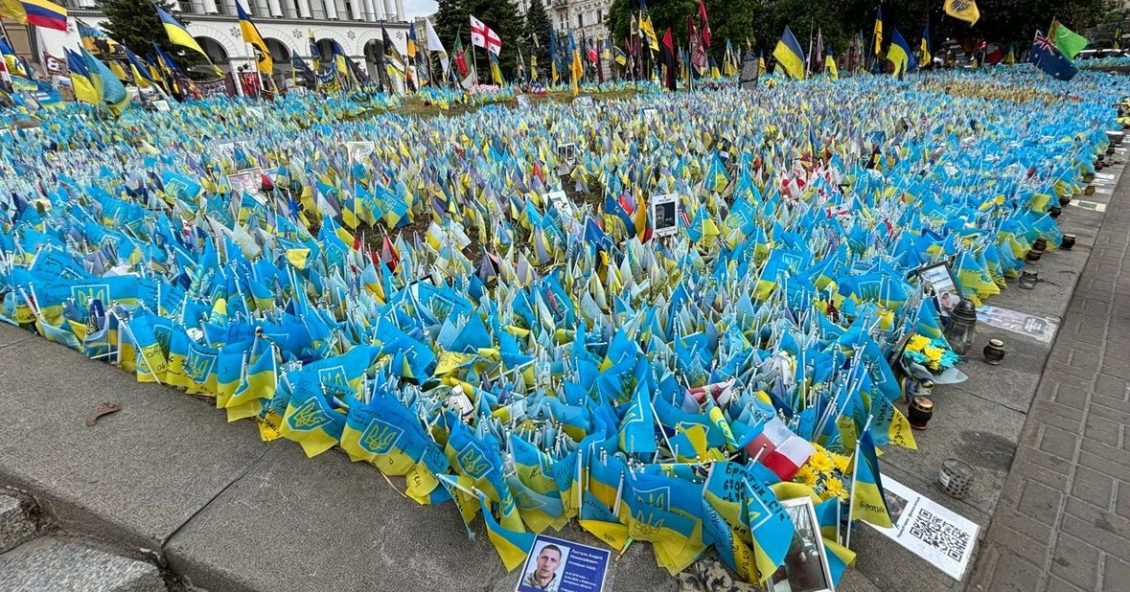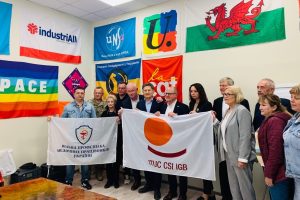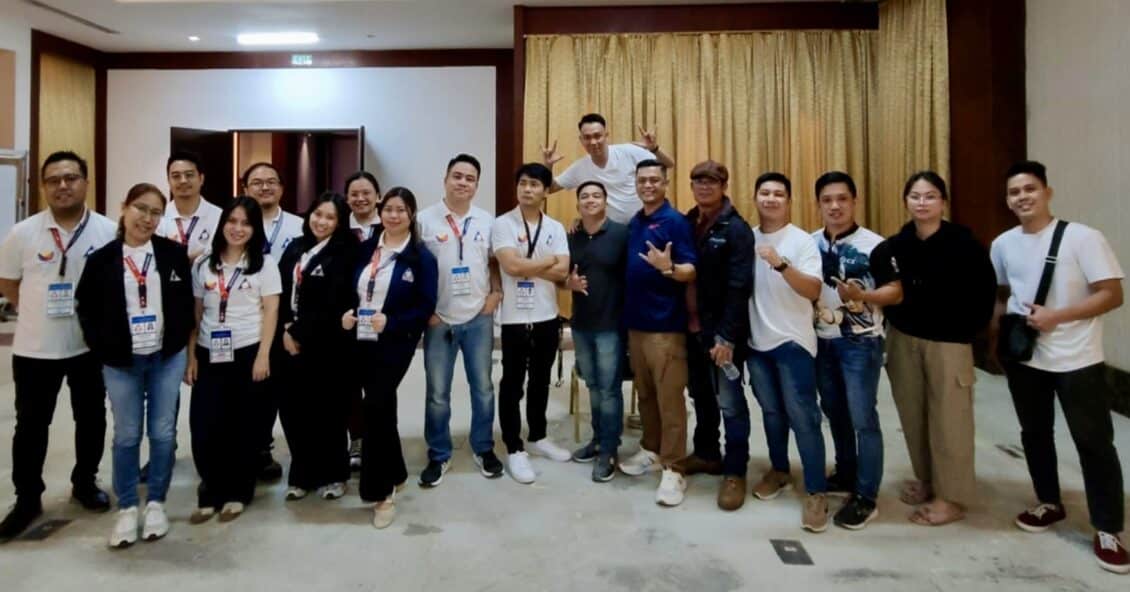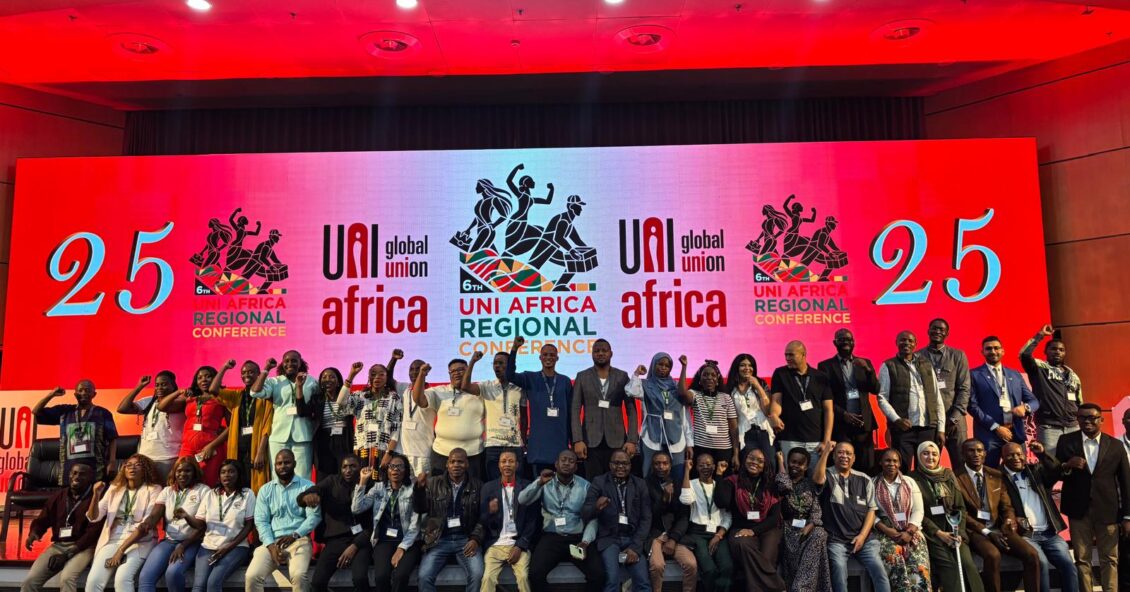Global unions in solidarity mission to Ukraine
24.05.24
UNI Global Union’s General Secretary, Christy Hoffman, travelled to Kyiv last week as part of an international trade union solidarity mission to Ukraine to reinforce support for unions and workers in the country.
The delegation, which was led by the International Trade Union Confederation (ITUC), included Luc Triangle, General Secretary of the ITUC, Atle Høie, General Secretary of IndustriALL Global Union, and Paul Novak, representing the British Trades Union Congress.
The group met with Ukrainian union leaders Mykhailo Volynets, Chairman of the Confederation of Free Trade Unions of Ukraine and also a Member of Parliament, and Hryhoriy Osovyi, Chairman of the Federation of Trade Unions of Ukraine, along with many affiliated unions in Ukraine, including UNI affiliate the Cultural Workers of Ukraine.
Many thousands of Ukrainian troops have perished or been maimed in the fighting, while at least 10,000 civilians have been killed and 20,000 injured according to the United Nations. Even far from the frontlines, Russian attacks mean that daily life is interrupted by air raid alarms and missile strikes.
“We learned firsthand the challenges facing workers and unions in the war-torn country and their courage as they continue to carry out their duties in extreme conditions,” said Hoffman. “Workers have been called to the frontlines, many have fled Ukraine, and the economy was devastated in 2022, only now showing signs of recovery.”
Data from the International Labour Organization shows that in the first year since the war began, there was a 29 per cent drop in GDP and a loss of 2.4 million jobs. There are now an estimated 6 million Ukrainian people working outside the country, 45 per cent of whom left since war broke out.
The delegation visited the Tripilska power station plant, near Kyiv, which has been almost entirely destroyed by Russian missiles in their effort to wipe out Ukraine’s critical infrastructure. “The staff is making heroic efforts to reconstruct the facility not knowing whether the plant will be destroyed again,” said Hoffman.
The global unions deplored the attacks on civilians and infrastructure. In a moving visit to Kyiv’s biggest paediatric hospital, the group saw children who had been the victims of bomb attacks and learned of the hardships of working under war time threats and short staffing.
The importance of social dialogue both during the war and for reconstruction in the future, was a key message from the international delegation to employers and politicians.
Hoffman who is also Chair of the Council of Global Unions, said: “Unfortunately, despite the country’s unity against Russian aggression, some forces have taken the cover of war to diminish workers’ rights, apparently intending that these changes would endure into the future. Many voices, including from among the employers, spoke in support of social dialogue, but this key principle seems to be dissolving on the ground and in law.”
Recent legal changes include a dramatic reduction in the scope of those with bargaining rights.
“We learned that some business interests are quietly working away to ensure that the Ukraine of the future will satisfy their wish list: extremely limited bargaining rights with few statutory rights for workers, zero hours contracts and move towards privatizing the pension system. We must stop this now.”
The delegation made clear that the global labour movement would stand strong to demand that all recovery funds are conditioned upon collective bargaining for the workers involved.
“Billions of public dollars are likely to flow into Ukraine to support an ultimate recovery, including from trauma, and reconstruction. This money will help to rebuild but it should also create an opportunity for good jobs and a role for unions so Ukrainian people have the society they deserve,” said Hoffman.
The global unions have condemned the Russian aggression against a free and independent Ukraine and stand united in their support for Ukrainian people.



